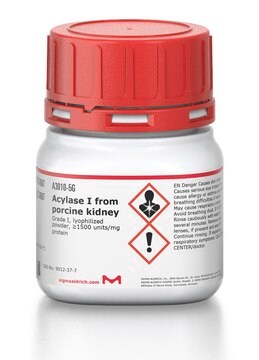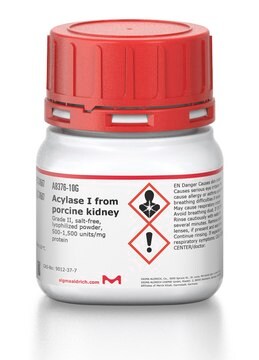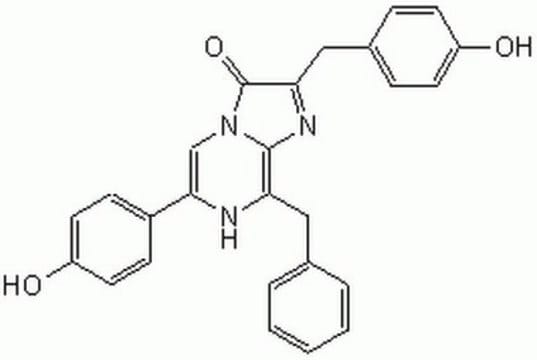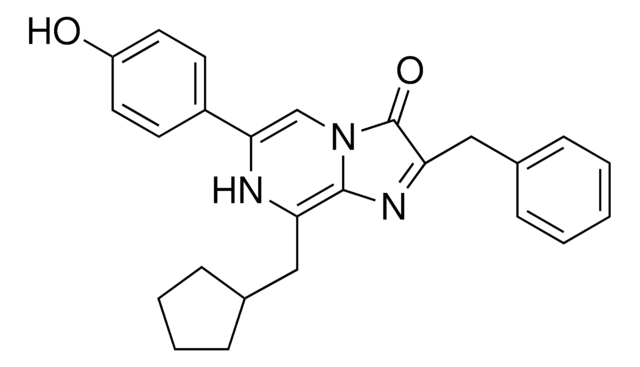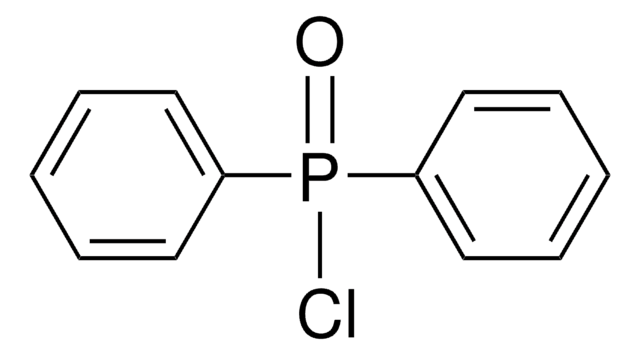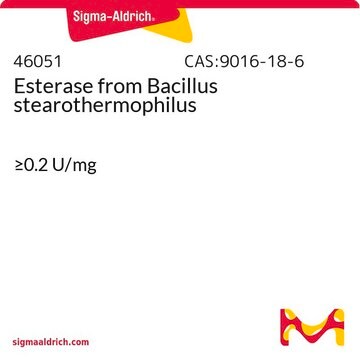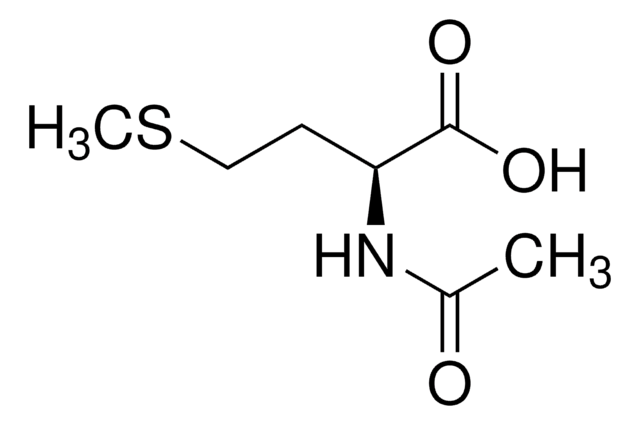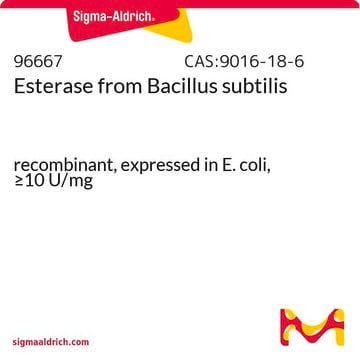01818
Acylase I from Aspergillus melleus
powder, brown, >0.5 U/mg
Synonym(s):
Acylase ‘Amano’, Aminoacylase
Sign Into View Organizational & Contract Pricing
All Photos(1)
About This Item
Recommended Products
General description
Acylase I belongs to the aminoacylase family of enzymes.
Application
Acylase I from Aspergillus melleus has been used to catalyze the Mannich reaction.
Biochem/physiol Actions
Acylase I plays an important role in the amino acid metabolism of organisms. It also plays a role in the acylation of primary and secondary alcohols. Acylase I is involved in alcoholysis.
Unit Definition
1 U corresponds to the amount of enzyme which hydrolyzes 1 μmol N-acetyl-L-methionine per minute at pH 8.0 and 37°C
Analysis Note
Enzyme activity: the optimum temperature is 40-45°C, the optimum pH is 8.0 (stable form pH 6-10). The enzyme is activated by CoCl2 in the range of 10-4 to 10-3 M.
Other Notes
Resolution of acetyl amino acids
signalword
Danger
hcodes
Hazard Classifications
Eye Irrit. 2 - Resp. Sens. 1 - Skin Irrit. 2 - STOT SE 3
target_organs
Respiratory system
Storage Class
11 - Combustible Solids
wgk_germany
WGK 1
flash_point_f
Not applicable
flash_point_c
Not applicable
ppe
Eyeshields, Gloves, type N95 (US)
Certificates of Analysis (COA)
Search for Certificates of Analysis (COA) by entering the products Lot/Batch Number. Lot and Batch Numbers can be found on a product’s label following the words ‘Lot’ or ‘Batch’.
Already Own This Product?
Find documentation for the products that you have recently purchased in the Document Library.
Customers Also Viewed
Physicochemical and catalytic properties of acylase I from aspergillus melleus immobilized on amino- and carbonyl-grafted stober silica
Kolodziejczak-Radzimska A, et al.
Biotechnology Progress, 767-777 (2018)
Preparation of the enantiomers of 1-phenylethan-1, 2-diol. Regio-and enantioselectivity of acylase I and Candida antarctica lipases A and B
Virsu P, et al.
Tetrahedron, 12(17), 2447-2455 (2001)
Enzyme-catalyzed asymmetric Mannich reaction using acylase from Aspergillus melleus
Guan Z, et al.
Journal of Molecular Catalysis. B, Enzymatic, 111, 16-20 (2015)
K. Uchida et al.
Journal of Labelled Compounds & Radiopharmaceuticals, 29, 867-867 (1991)
Christoph M Ernst et al.
Molecular microbiology, 80(2), 290-299 (2011-02-11)
Bacteria are frequently exposed to cationic antimicrobial peptides (CAMPs) from eukaryotic hosts (host defence peptides) or from prokaryotic competitors (bacteriocins). However, many bacteria, among them most of the major human pathogens, achieve CAMP resistance by MprF, a unique enzyme that
Our team of scientists has experience in all areas of research including Life Science, Material Science, Chemical Synthesis, Chromatography, Analytical and many others.
Contact Technical Service